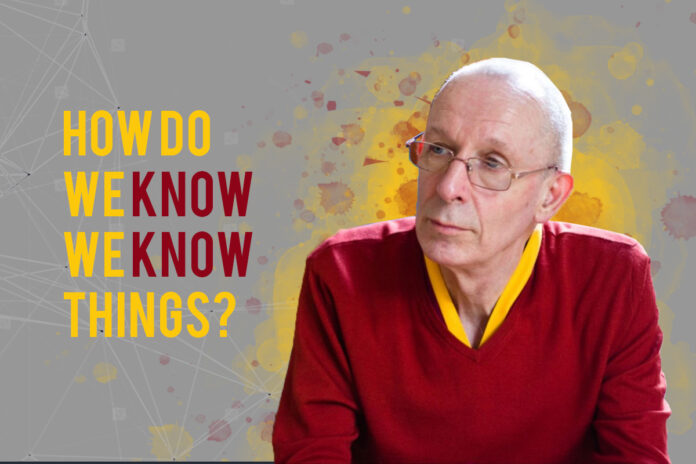In general, one can claim to have knowledge if one has a belief that is true or true belief. One of the oldest (classic) way to confirm the truth of one’s belief is by imposing the act of justification. Justification in this context means “being in possession of good reasons for thinking one believes is true” (Pritchard, 23). This further differentiates a mere luck and a knowledge. In short, justified true belief is a classical account of knowledge.
The problem of this kind of notion arises since there exist cases where having a justified true belief does not mean having a knowledge. Such cases are called Gettier cases. One of the examples of a Gettier case is illustrated below:
Zam is a student who comes from foreign country and doing International master in RWTH Aachen, Germany. He does not have any prior understanding in German language but nevertheless he can check the meaning of the words or sentences in Google Translate. In the first week of his studying, he founds there is a room for studying in the campus where every student can access every day. He observes that everyone that enters the room pushes a button at the side of the door before opening the door. Through rational reasoning, he concludes that button is needed to open the locked door. Apparently one needs to unlock the door first by pushing that button then opens it. His claim is strengthened by the words that are written on that button: “Tuer auf” which by Google checking means “open the door” and by the sound of mechanical machines inside the door when someone pushes the button that he associates with the sound of the unlocking process. After that, he never has any doubts that by pushing that button, the door is unlocked and he can open the door. Since in any given chance he arrives at that door, everyone does the same steps, he is convinced that the door can only be opened by pushing that button first. However, unbeknownst to him – despite having a mechanical sound and a label that says “open the door”- the door can be opened directly without push that button because the button is long broken.
From the case above, we can identify key elements of Gettier case. First, the forming of justified true belief by the agent. In the above example, the agent believes that to open the door, one needs to push the button first. The agent belief is justified by several factors, such as: the “Tuer auf” sign at the button, the mechanical sounds that are made by the door when one pushes the button (which further associates by the agent as the sign of the unlocking door), and every student that he observes enters the room always pushes the button first. All that points can be said as good reasons for the agent’s belief to be true.
Nevertheless, having a justified true belief in the sense of agent’s perception doesn’t mean he has a knowledge of the agent belief is a false belief. From the example, the agent does not have access to the knowledge that the button is in fact, broken and the door can be opened directly since his false belief is justified by all the reasons mentioned before.
It is also worth noting that the example above also gives another counter case with the reliabilism. Reliabilism changes the notation of knowledge, from mere justification of true belief to “true belief that is gained in a reliable way, where ‘reliable’ here means that, at the very least, the method used was more likely to get you the truth than not” (Pritchard, 55).
If we disregard the actions of translating the “Tuer auf “and the paying attention to the sound of the mechanical machines inside the door, then the action of the agent that simply observes people opening the door by pushing the button first already is a sufficient condition for justifying his belief: the button is for unlocking the door. The fact that the agent does more than just observing, shows that indeed the agent has a reliable way of attaining his belief which turns out to be still a false belief. Hence not a knowledge. This shows that Gettier cases can become a problem not just in classical notion of knowledge as a justified true belief but also in other notion of knowledge such as reliabilism.
The existence of Gettier cases further impacts our understanding of true beliefs and its relations to knowledge in a broader sense. If we maximally imagine a Gettier case, where all of that we beliefs are falsely justified (by justification or other means), it means we know nothing at all or know that we thought we had will be so little. Maybe we can argue that the possibility of such Gettier case is incomparably small and can be ignored, but nevertheless, it is always possible and there is no way we know about it. We fell in the realm of skepticism.
Referensi
Pritchard, D. (2014). What is this thing called knowledge?. 3rd ed. Oxon: Routledge, p.23, p.55, pp. 105-106, p.170, pp.183-184.


